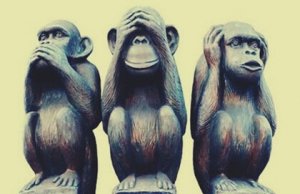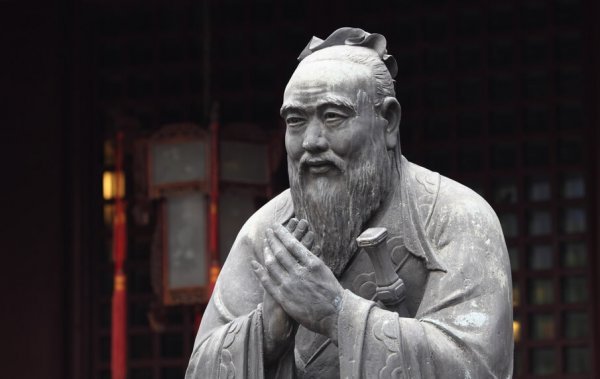The Three Wise Monkeys Metaphor to Help You Live a Happy Life

Most people have seen the three wise monkeys before. It’s usually the image of three monkeys: one covering its mouth, one covering its ears, and the last one covering its eyes. It’s a wooden sculpture from the 17th century and refers to the ways of living a good life in broad terms.
The sculpture was erected in the Tōshō-gū shrine in Japan. Each one of the three wise monkeys has a name: Mizaru, Kikazaru, and Iwazaru. Respectively, these names mean see not, hear not, and speak not. But what does that have to do with living a happy life?
It all seems to indicate that the sculpture embodies a Confucius proverbial principle. The famous principle says, “See no evil, hear no evil, speak no evil”. So the fundamental principle is not to get away from everything in the world, but to refuse to get in touch with evil things. This is part of the art of living a happy life.
“When you can avoid an evil, it is foolish to accept it.”
-Terence-
Confucius and the three wise monkeys
Confucius’ principle tells us to avoid evil. But does this make sense? The first thing that comes to mind is that we can refuse to see, hear, or speak evil, but that doesn’t mean it’s going to disappear from the world. However, we could ask ourselves another question: What do we get in life from knowing or speaking about evil?
There’s a paranoid trait deep inside ourselves that finds satisfaction in evil things. It’s possible that we tell ourselves that by being aware of perversions, we become automatically protected from any threat. For example, if you know there’s an alley in which many crimes happen, you’ll be able to avoid it and reduce your risk of getting robbed.
It seems logical. However, if you look closer, it’s really not. Why? Because evil in the world is the exception and not the rule. There are many more honest and good people.
In addition, it’s been proven that being nervous or tense is one of the things robbers evaluate before attacking someone. In other words, victims and culprits both have certain things in common.

Interest in evil and living a happy life
If we can live without knowing the last breakthrough in the field of quantum physics, then why shouldn’t we be able to live without knowing about the evil in the world? Here we must also mention that there are reasons to think that witnessing cruel crimes, either personally or on TV, increases either our tendency to commit a crime or our victimization potential.
This has to do with mirror neurons. The brain isn’t always capable of differentiating reality from fantasy, which is why we feel scared during horror movies. We perfectly know that it’s fiction, but it still sparks certain emotions inside us.
Therefore, seeing, hearing, or speaking evil might have a toxic effect in our mind. It’s possible that evil feeds our fears or the monster that hides deep inside of us. Thus, maybe Confucius was right after all.

Mental hygiene
The sculpture of the three wise monkeys is a guide to live a happy life and it’s a basic principle of mental hygiene. Seeing, listening, or speaking about evil things could lead to a state of anxiety. We suddenly forget that, statistically and mathematically, there are more good people than bad people in the world. Instead of this, we believe the opposite. We feel that we’re in a reality where something awful could happen to us at any time.
Many people think, “What if I’m a victim of true evil?” Confucius’ principle fits perfectly here. We must work toward pushing away those thoughts.

Evil and scandalous things are topics that sell. It’s all part of a type of pain pornography that scares and fascinates at the same time.
Horror and fascination are neurotic. Part of the art of living a happy life is changing our perspective of the world and how we act based on it. Thus, it’s completely valid to refuse to be a witness or take part in evil actions.
This text is provided for informational purposes only and does not replace consultation with a professional. If in doubt, consult your specialist.








